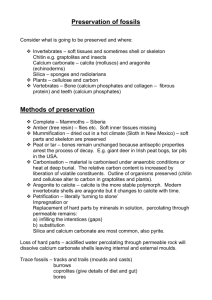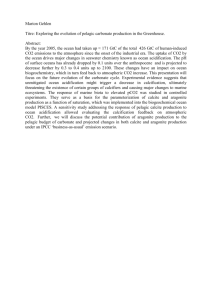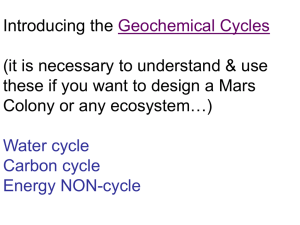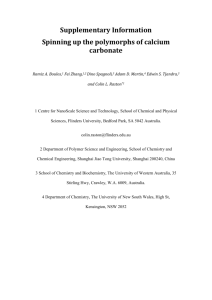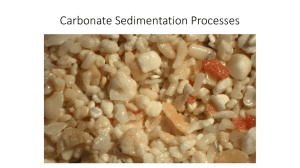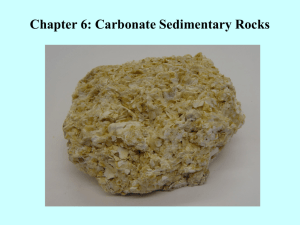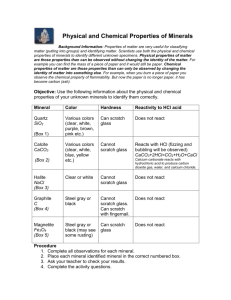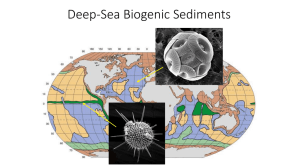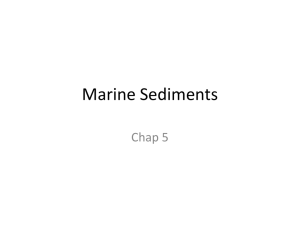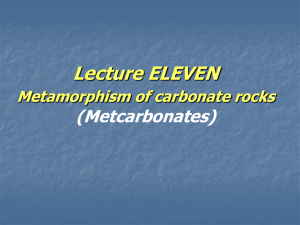carbon dioxide and the carbonate compensation depth
advertisement
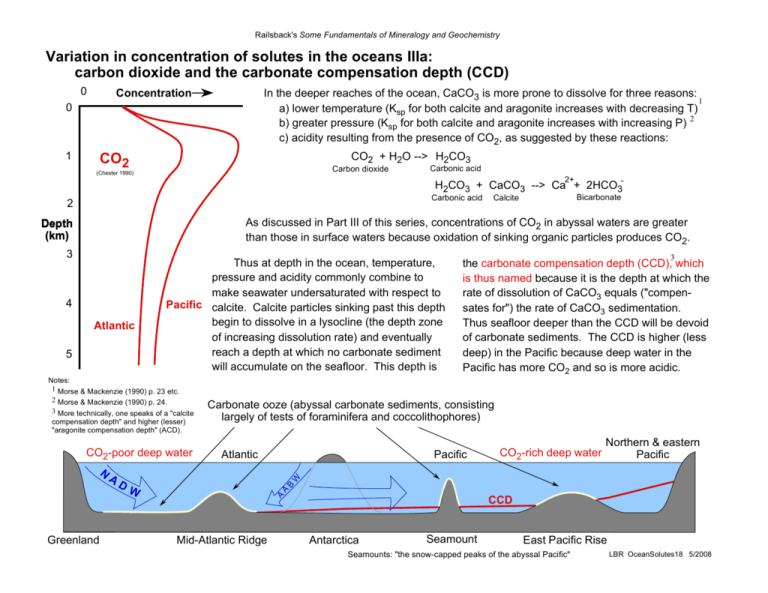
Railsback's Some Fundamentals of Mineralogy and Geochemistry Variation in concentration of solutes in the oceans IIIa: carbon dioxide and the carbonate compensation depth (CCD) 0 Concentration In the deeper reaches of the ocean, CaCO3 is more prone to dissolve for three reasons: 1 a) lower temperature (Ksp for both calcite and aragonite increases with decreasing T) b) greater pressure (Ksp for both calcite and aragonite increases with increasing P) 2 c) acidity resulting from the presence of CO2, as suggested by these reactions: 0 1 CO2 + H2O --> H2CO3 CO2 Carbon dioxide (Chester 1990) Carbonic acid 2+ - H2CO3 + CaCO3 --> Ca + 2HCO3 Carbonic acid 2 Bicarbonate Calcite As discussed in Part III of this series, concentrations of CO2 in abyssal waters are greater than those in surface waters because oxidation of sinking organic particles produces CO2. Depth (km) 3 4 Atlantic 5 Thus at depth in the ocean, temperature, pressure and acidity commonly combine to make seawater undersaturated with respect to Pacific calcite. Calcite particles sinking past this depth begin to dissolve in a lysocline (the depth zone of increasing dissolution rate) and eventually reach a depth at which no carbonate sediment will accumulate on the seafloor. This depth is Notes: 1 Morse & Mackenzie (1990) p. 23 etc. 2 Morse & Mackenzie (1990) p. 24. 3 More technically, one speaks of a "calcite compensation depth" and higher (lesser) "aragonite compensation depth" (ACD). Greenland A D Atlantic Pacific CO2-rich deep water Northern & eastern Pacific B N Carbonate ooze (abyssal carbonate sediments, consisting largely of tests of foraminifera and coccolithophores) W CO2-poor deep water 3 the carbonate compensation depth (CCD), which is thus named because it is the depth at which the rate of dissolution of CaCO3 equals ("compensates for") the rate of CaCO3 sedimentation. Thus seafloor deeper than the CCD will be devoid of carbonate sediments. The CCD is higher (less deep) in the Pacific because deep water in the Pacific has more CO2 and so is more acidic. W A Mid-Atlantic Ridge A CCD Antarctica Seamount East Pacific Rise Seamounts: "the snow-capped peaks of the abyssal Pacific" LBR OceanSolutes18 5/2008
